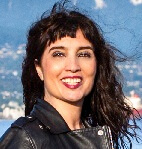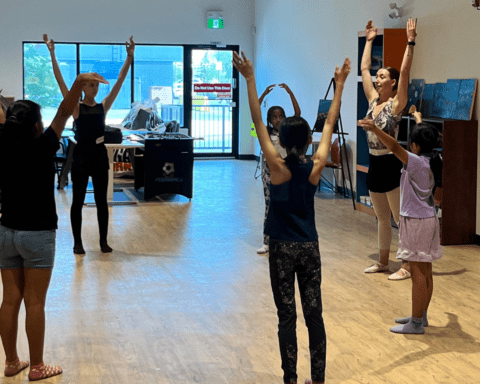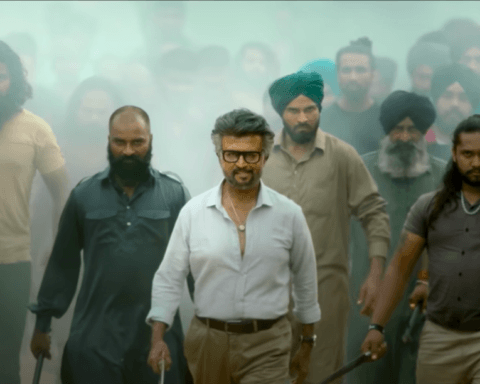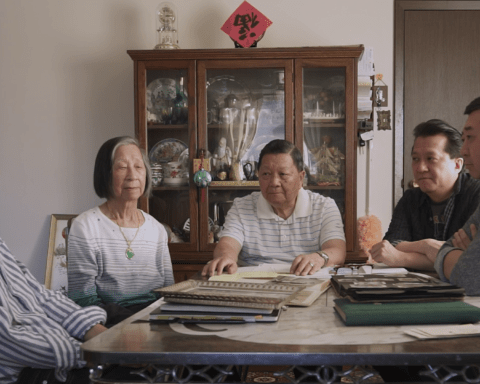As the Palm Springs International Film Festival wraps up and Thursday’s Oscar nominations loom, I remember the words of my old friend Paolo Consigilio.
The expert Italian mask maker fused his commedia del arte style craft with a Pasolini like cinematic sensibility and spent time in both Canada and his homeland.
When I asked him once to define the difference between the two places he said, “In Italy, everyone wants to be the protagonist in the movie.”
In Canada, he said, we are content to be on the sidelines.
I contemplate this from Vancouver’s Hollywood North where every other person seems to be connected to the film industry and after a week spent at the Palm Springs International Film Festival, where Canadian cinema is a star attraction.
While Palm Springs is more known for its population of aging Republicans and its modernist architecture, the festival, now in its 27th year, has quietly become a hub for world cinema. This year all nine of the films shortlisted for the Foreign Language Oscar and their directors were present at the festival.
Canadian presence
99 and a half miles from Los Angeles’ Paramount Studios, Palm Springs has always lived in Hollywood’s shadow. Once a getaway for Hollywood stars (who under contract could not go farther than 100 miles from the studios) 10% of its population is now Canadian.
Key film festival administrators are Canadian, and Telefilm is a big film festival partner. With its incongruous mix of Hollywood glamour and earnest world cinema – ranging from a first weekend gala celebrating stars in the mainstream firmament to the opening night Finnish film The Fencer about the Cold War in Estonia– the festival also provides an interesting lens on Canadian culture. Indeed, the eight films from the true north strong and free this year provided much food for thought.
Maxime Giroux’s Felix and Meira – Canada’s Foreign Language Film Oscar submission for 2016 (which sadly didn’t make the shortlist) tells the story of the romance between an Orthodox Jewish woman and a bohemian French Canadian artist in Montreal.
Ryan McKenna’s Sabali is about a French Canadian woman who receives a heart transplant from a Malian immigrant woman and then befriends her son.
Phillippe Falardeau’s My Internship in Canada is a satirical look at the relationship between a Quebecois politician and his Haitian intern, while Adam Garnet Jones’ Fire Song concerns a “two-spirited” First Nations man living on an Anishnabe reservation in Northern Ontario who must navigate between his cultural and sexual identities.
Versions of multiculturalism
Program in hand, I contemplated the differences between Canadian and American versions of multiculturalism as I settled into my room at the Palm Mountain Resort. My immediate neighbours, an inter-racial lesbian couple from nearby San Bernardino, where the recent shootings unfolded like a bad Hollywood movie, chatted excitedly about the Lily Tomlin film Grandma. But when the subject changed to current events, the blonde half of the couple mentioned that her son attended the same shooting range as one of the shooters, Tashfeen Malik. She blamed U.S. President Barack Obama and his “open-door visa policy” for “letting those people in.”
My old friend Paolo’s words rang in my head at the opening weekend gala, where a red carpet full of paparazzi greeted stars like Johnny Depp and Cate Blanchett, who were honoured by the festival.
I tried hanging out with fellow journalists waiting for 10-second sound bites and rapid-fire photos of Hollywood’s finest, but it felt weird. Later, inside the gala dinner, I wondered if it were my Canadian sensibility that stopped me from lining up for photographs with Johnny Depp. As enthusiastic fans stepped up, I watched from the sidelines.
I chatted with some young Czech filmmakers who didn’t have tickets to get in, from the vantage point of the cosier hotel lobby and fireplace. I was briefly reminded of the Hollywood comedy A Night at the Roxbury and the “inside-outside” nightclub, where the real party happens on the edges of the club.
Dividing screens
Later, in an interview with young Anglo-Jordanian director Naji Abu Nowar, whose first feature – the Oscar shortlisted Theeb– was about the Arab Revolt of 1916 seen through Bedouin eyes, I thought more about invisible dividing screens.
Theeb is the first Arab film shot in the Bedouin dialect, and one that steers clear of stereotypes common in mainstream Arab cinema (not unlike, said the director, “old Hollywood cowboy and Indian films”) as well as Western colonial narratives like Lawrence of Arabia.
The cast were all first time Bedouin actors – some of whom were unfamiliar with the whole concept of cinema. At a local screening in the desert, one of the young nieces of a lead actor who meets an untimely death on screen proved inconsolable, until her very much alive uncle was brought forward. She had to be shown the edges of the screen before she was entirely convinced.
In a world where the most interesting stories unfold at the edges, sometimes it’s hard to keep track of what’s real and what is celluloid.
And in a world where mainstream narratives – often more fantasy than reality – still dominate, I think I may be content to remain on the sidelines. At least until a fresh set of protagonists emerge to pierce the screen and show us new horizons.
Hadani Ditmars is the author of Dancing in the No Fly Zone and is working on a new book about ancient sites in Iraq. She has been reporting from the Middle East for two decades and is also a singer and musician.





